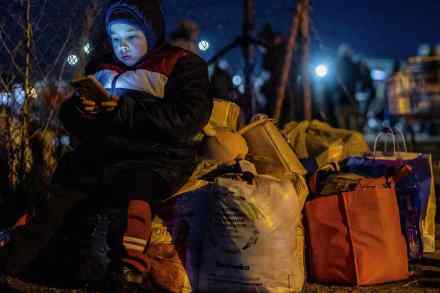The invasion of Ukraine and the death of globalisation
Putin’s savage invasion of Ukraine, and the West’s collective response, is the moment that the slow death of financial and trade globalisation has been accelerated and made irreversible. Globalisation has been rolled back since the banking crisis of 2008, first by the banking regulation that followed, then by Trumpian and Brexit nationalism and mercantilism, then by Covid and now by the shock of war. The current dislocation of supply chains, especially for energy but much more broadly, means inflation will be much higher for longer – because businesses will speed up the shift in procurement of raw materials, energy, components and so on to supplies much closer to home. It





















